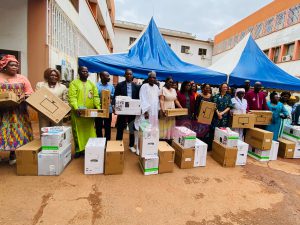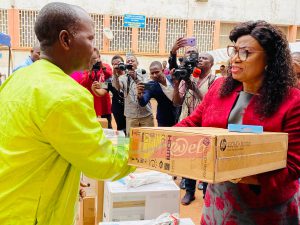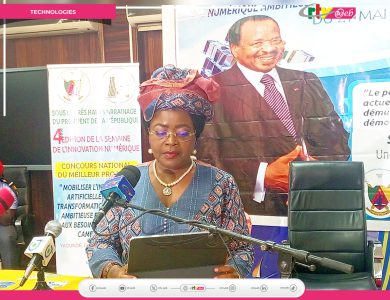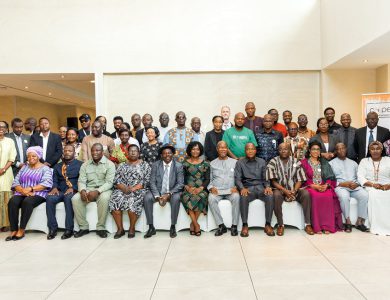The Minister of Social Affairs, Paulin Irene Nguene, has called on the heads of pilot social centers across the ten regions of Cameroon to make good use of the computer equipment provided to them. This equipment is intended to ensure the progressive registration of vulnerable households and individuals in the Unified Social Register of Cameroon (RESUC) database.
Minister Nguene made this statement recently in Yaoundé during an event organized by her ministry to reinforce the capacities of these social centers. The goal is to facilitate the registration of households and socially vulnerable persons in their respective regions through the RESUC plan. She added that the expected result is to have 250,000 households registered by June 2025.
RESUC is a mechanism for recording and geolocating households and socially vulnerable people at the local, departmental, regional, and national levels. It will serve as a reservoir for all national and international actors working to improve the living conditions of the Cameroonian population. RESUC constitutes the single entry point for all social protection net programs and projects.
Since December 2017, Cameroon has developed and validated the National Social Protection Policy (PNSP), which aims to protect the most vulnerable populations and strengthen the integrated social protection system. Cameroon is currently investing in the construction of an integrated and sensitive social protection system for socially vulnerable households, with the deployment of Social Safety Net Projects (PFS) during the COVID-19 pandemic in 2021, and the establishment of RESUC.
According to Decree No. 041/PM of May 19, 2022, RESUC is a national system for registration, management, and information on non-contributory, adaptive, and sensitive social protection for socially vulnerable persons. It covers all projects and programs related to Social Protection.
The implementation of RESUC aims to strengthen the social protection system in the country at a time when it is clear that if nothing is done to strengthen the resilience of socially vulnerable persons and households to social, environmental, food, and economic shocks, the social cohesion of the country could be fractured with lasting consequences for stability and development.
One of the recipients, Janet Agnes Akoh, the Chief of Tuba Social Center, expressed satisfaction with the equipment. She said, “Tuba Social Center is very happy with this equipment because the sub-division is so vast, including Bambili, Bambi, Sabga, and Bambanki. With all these equipment, we are going to have identification that would be done with ease because all along, we have been working manually with lots of difficulties. With this, IDPs that are flooding the subdivision would benefit massively from it.”
Che Tembuck


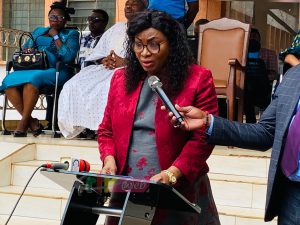 The Minister of Social Affairs, Paulin Irene Nguene, has called on the heads of pilot social centers across the ten regions of Cameroon to make good use of the computer equipment provided to them. This equipment is intended to ensure the progressive registration of vulnerable households and individuals in the Unified Social Register of Cameroon (RESUC) database.
The Minister of Social Affairs, Paulin Irene Nguene, has called on the heads of pilot social centers across the ten regions of Cameroon to make good use of the computer equipment provided to them. This equipment is intended to ensure the progressive registration of vulnerable households and individuals in the Unified Social Register of Cameroon (RESUC) database.